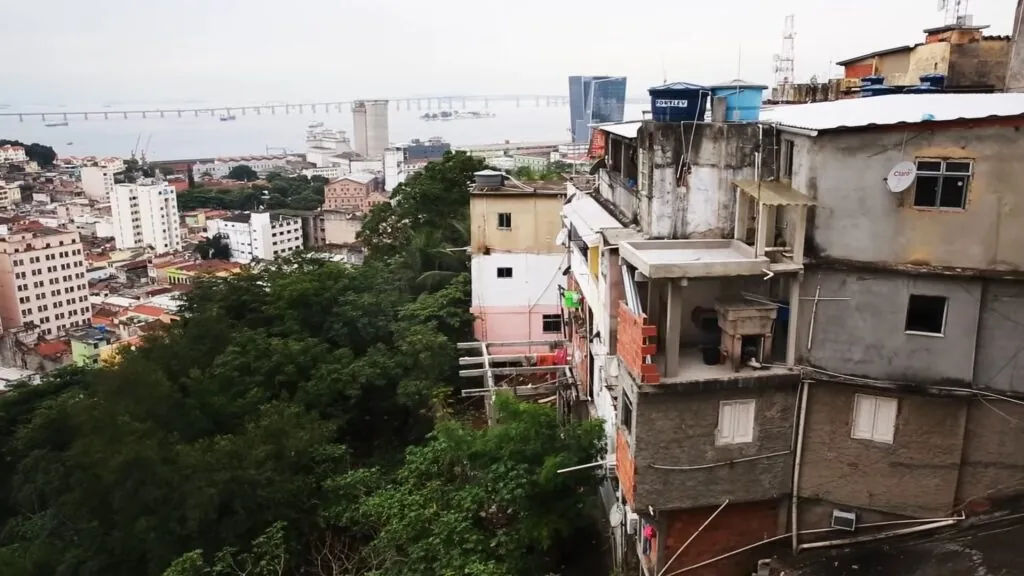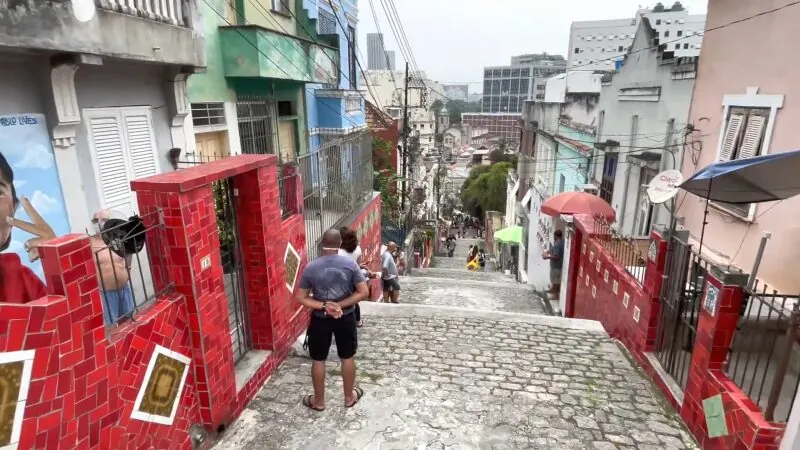
Travelers often ask the same question before booking a trip to Brazil’s most famous city: is Rio de Janeiro safe?
Media reports sometimes exaggerate the dangers, but the real answer depends on where you go, how you behave, and when you visit.
Rio de Janeiro is a massive city with safe and unsafe areas, just like many global destinations. Millions of visitors enjoy the beaches, landmarks, and festivals every year without trouble.
It’s especially popular around Christmas, New Year’s Eve, and of course, during the Carnival.
Staying cautious and learning a few safety tips will surely help you spend a perfect vacation in Rio de Janeiro. Keep reading to find out more.
There Are Many Unsafe Areas

When discussing safety in Rio de Janeiro, it’s crucial to acknowledge the reduction in violent crime rates across Brazil, per mlive.com.
Still, Rio is a vast city, and not all areas offer the same level of safety.
Some neighborhoods are significantly safer than others, and even these safer zones can feel different during various times of the day.
This city is not among those with the highest homicide rates, but you still need to be cautious and visit only safe areas.
Safe Neighborhoods
- Ipanema
- Copacabana
- Leblon
- Botafogo
These areas in Zona Sul (South Zone) are generally safe, even at night, and are good options for staying in Rio.
However, remember that Rio is a large city with over 6 million people, so stay aware of your surroundings and take the usual precautions.
Areas to Avoid
- Favelas (Slums) in Zona Norte
Avoid visiting the favelas, even on guided tours, as your safety cannot be guaranteed by tour companies or the police.
Rio de Janeiro is known as one of the most dangerous cities in Brazil, and certain areas pose significant risks.
Locals know the city best and can offer personalized advice on which areas to steer clear of.
So, Is It Safe to Visit Rio de Janeiro in 2025?
According to Agencia Brasil, the crime rate in Rio decreased by approximately 18% in 2023.
While this doesn’t mean Rio is entirely safe, staying in tourist areas and following my tips should help you avoid issues.
Visiting Rio de Janeiro can be a delightful experience as long as you take some simple precautions.
The most common issue visitors face is petty theft, such as pickpocketing and snatching of cell phones.
To ensure your safety:
- Stay aware of your surroundings: Avoid displaying valuables openly.
- Be cautious at night: Stick to well-lit areas and avoid secluded spots.
- Respect local advice: Avoid visiting favelas unless you are with a trusted guide.
- And remember: Awareness and vigilance are your best allies for a safe and enjoyable trip.
Also – Check out the safest cities in Brazil.
Important Safety Tips
1. Transportation in Rio
When moving around Rio de Janeiro, there are several options: walking, public transit, taxis, and organized tours.
If you opt for taxis, ensure they’re legitimate by checking for the right markings or using the 99taxi app.
Using UBER in Rio is recommended. Always verify the car’s license plate before entering, and request the driver to use main streets instead of back roads.
Despite bus routes being somewhat confusing, the metro is a better alternative as it is clean and organized.
Interestingly, there are women-only cars during peak hours. Walking is generally safe in main areas like the boardwalk, provided you stay alert.
2. Exercise Caution at the Beach
Rio’s beaches, such as Copacabana and Ipanema, are spectacular but also prone to theft. Bring only essential items and always keep an eye on your belongings.
Avoid leaving anything unattended as thieves are quick to take advantage.
Snatch-and-grab incidents, particularly involving phones, are common. The city has attempted to address these issues with increased police presence in tourist areas.
Always be cautious on the beach and its surroundings.
3. Avoid Wearing Flashy Jewelry
Wearing expensive jewelry can attract unwanted attention. Leave items like diamond rings, gold chains, and dangling earrings at home.
Petty thefts often target visible valuables. To reduce risk, avoid displaying any flashy accessories at all times.
4. Be Wary of Pickpocketing
Pickpocketing is prevalent, especially in crowded places. Keeping valuables in open pockets invites trouble.
For instance, using a travel-safe bag, like the Travelon bag, provides added security and peace of mind. Be aware of people standing very close to you, particularly on buses or in busy areas.
5. Differentiate Between Favelas
Not all favelas are dangerous. Some, like Vidigal, offer vibrant communities with friendly locals, stunning views, and unique shops.
You can participate in local tours, such as those in Santa Marta or Vidigal’s Two Brothers Mountain hike. However, always go with local guides to ensure safety and support the community.
6. Stay Alert During Nightlife
Nightlife in Rio, particularly in places like Lapa, can be risky. If you’re out drinking, stay in crowded areas and watch out for pickpockets.
Avoid flashing large amounts of cash and prefer taking out money from ATMs in bank locations during the day.
Uber or taxis should be arranged by the bar or restaurant you are at. Pay attention to what you’re being charged for drinks to avoid getting overcharged.
Also, avoid walking alone or inebriated along the beach sidewalks or dark streets late at night.
7. Protect Your Credit Cards
Credit card cloning is a known risk in Rio. Ensure you only swipe your card in trustworthy locations, verify ATMs for tampering, and cover your PIN when entering it.
Bringing 2-3 credit cards is wise, with one kept securely at your accommodation.
8. Exercise Caution in Centro
Centro is known for its excellent restaurants, markets, and nightlife. Events like the Monday party at Pedra do Sal and the Friday scene in Lapa are notable.
Nonetheless, avoid wandering alone in Centro and always remain conscious of your surroundings. Sometimes, Uber drivers in this area may even skip red lights for safety reasons.
9. Ask for Assistance When Needed
If you find yourself lost or in need of assistance, don’t hesitate to ask for help. Locals and police in tourist spots can often provide guidance.
Remember, asking for directions or help when feeling unsafe isn’t a sign of weakness, it’s a step toward ensuring your safety.
10. Stay Relaxed but Alert
Don’t grip your valuables too tightly, as it makes you more noticeable. Instead, remain calm and act naturally.
Always be aware of your environment and who is around you. This balanced approach helps you stay less visible to potential thieves without seeming overly anxious.
Tap Water and Vaccines
Tap Water
- The tap water in Rio is not safe to drink, so stick to bottled water.
- While tap water in hotel rooms and ice cubes in restaurants are filtered and safe, this is not true elsewhere.
- Consider using a reusable water bottle with a filter to reduce plastic waste and make your trip more sustainable.
Vaccines
- Ensure you are up to date on routine vaccinations and have received the COVID-19 vaccine.
- The CDC recommends additional vaccines for travelers to Brazil: hepatitis A, typhoid, and yellow fever.
- Depending on your length of stay and plans to visit rural areas, you may need more vaccines. Consult with your doctor for personalized advice.
Safety Tips for Solo Female Travelers
- Solo travelers, including women, find Rio an exciting city to explore. However, you should take a few safety precautions to ensure a safe trip.
- Research the area before you go; female travel bloggers with solo travel experience are valuable resources.
- Stay vigilant and protect your personal information.
- Avoid accepting drinks or food from strangers.
- For a local perspective, consider working with a female trip planner who can help you explore Rio safely.
FAQs
What is the best time to travel to Rio de Janeiro?
The best time to visit Rio is from December to March, during the Brazilian summer. This period includes the festive seasons of Christmas, New Year’s Eve, and Carnival. However, this is also the busiest time, so plan and book accommodations early.
What are the best street foods to try in Rio de Janeiro?
Rio is known for its diverse and delicious street food. Some must-try items include:
- Coxinha: A savory snack made of shredded chicken wrapped in dough and fried to perfection.
- Pão de Queijo: Chewy cheese bread that is a favorite among locals.
- Pastel: A crispy pastry filled with cheese, meat, or heart of palm.
Are there family-friendly activities in Rio de Janeiro?
Rio offers several family-friendly activities, including visits to Sugarloaf Mountain, Christ the Redeemer, and the Botanical Garden. Families can also enjoy time on Copacabana Beach or Ipanema Beach, where there are calmer areas suitable for children.
What local festivals should I know about when visiting Rio?
In addition to Carnival, Rio celebrates several unique festivals:
- Festa Junina: Celebrated in June, this festival features traditional food, music, and dance.
- New Year’s Eve at Copacabana Beach: Known for its incredible fireworks display and festive energy.
- Rio International Film Festival: An annual event showcasing global and Brazilian films.
Do I need to speak Portuguese to get around Rio de Janeiro?
While Portuguese is the primary language spoken in Rio, many tourist areas have English-speaking staff. Learning a few basic Portuguese phrases can be helpful and appreciated by locals. Smartphone translation apps can also assist in communication.
Last Words
Rio de Janeiro offers unforgettable beaches, iconic landmarks, and rich culture. Exploring it with awareness and preparation ensures a safe and enjoyable trip.
The city is alive with beauty and energy, ready to leave you with memories that last a lifetime.





















